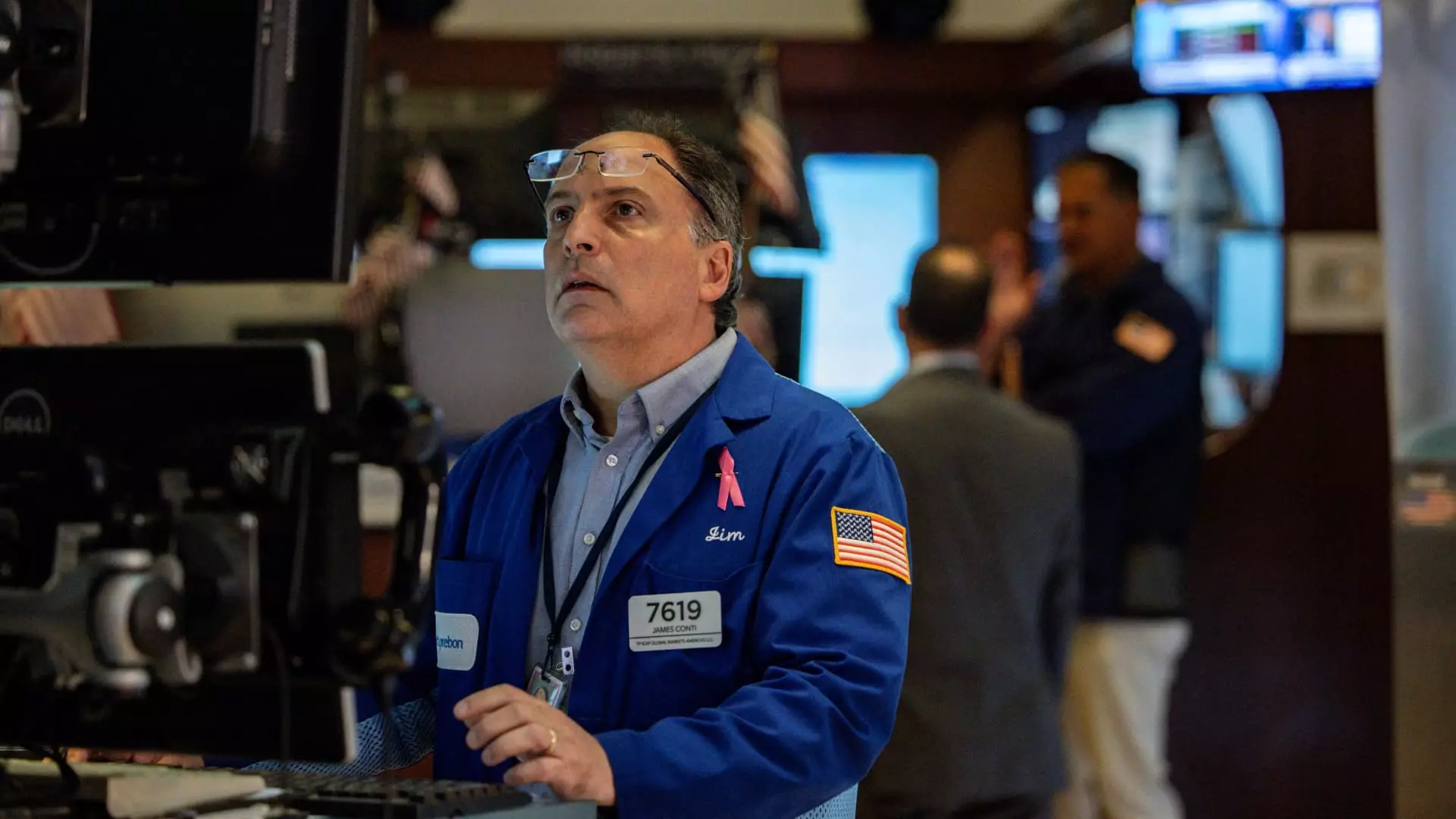In a landscape dominated by fragile optimism, the recent plunge in stock markets exposes the underlying vulnerability of an economic system increasingly strained by geopolitical tensions. Despite the previous record highs, the sharp decline on Friday reveals how swiftly investor confidence can evaporate when uncertainty rears its head. The Dow Jones’ fall of over 279 points and the slight dips in the S&P 500 and Nasdaq illustrate a market trembling on the edge—caught in a web of escalating trade tensions and political brinkmanship. This reaction serves as a stark reminder that markets are not immune to the tremors of geopolitical conflicts, especially those rooted in complex international trade disagreements that threaten to destabilize economic stability.
Trade War: A Symptom of Geopolitical Fragility
The core issue driving the recent market decline is the intensification of trade disputes, exemplified by President Trump’s tariff announcements targeting Canada and potentially other allies. The imposition of a 35% tariff on Canadian goods and the threatening language concerning broader global tariffs highlight a dangerous flirtation with protectionism. While some investors initially dismissed these threats as political posturing, the market’s reaction signals a deeper concern about a global trade environment veering toward volatility. The mention of fentanyl as a justification for tariffs underscores the complex intersection of domestic policies and international diplomacy, which adds layers of unpredictability to already fragile markets. Trade tensions are no longer superficial concerns; they have morphed into significant economic hurdles capable of shaking investor confidence.
Echoes of Historical Instability
The current moment bears disturbing parallels to past episodes of economic uncertainty prompted by political conflicts. Historically, abrupt protectionist measures and tariff escalations have often led to economic downturns, trade disruptions, and sharp market corrections. This pattern seems poised to repeat, with the added complication of digital and financial globalization amplifying the impacts. What makes this situation particularly precarious is the unpredictable nature of the policy signals from the highest levels of government. The absence of clarity regarding European Union tariffs and the strategic ambiguity about future negotiations breeds an environment of uncertainty that investors are justifiably wary of. History suggests that markets tend to overreact to such instability, which can spiral into broader economic apprehension.
The Illusion of Market Resilience
Despite the immediate dip, some commentators still point to the market’s prior resilience—its ability to shrug off geopolitical shocks in recent weeks. However, this perception of steadfastness may be dangerously misleading. Markets often exhibit a false sense of robustness before a significant correction, and the current volatility indicates that investor complacency is unwarranted. The juxtaposition of record highs with intense trade conflict demonstrates that the perceived strength of the economy is superficial, hiding structural issues that reliance on rapid fiscal and monetary policy responses cannot cure indefinitely. Furthermore, the rhetoric of tariffs and retaliations amplifies fears of a prolonged trade war, which could ultimately translate into slowed economic growth, higher consumer prices, and reduced investment.
The Significance of Political Narratives on Market Sentiment
The role of political narratives, especially from influential leaders like President Trump, must not be underestimated. His strategic use of tariffs as leverage in diplomatic negotiations exemplifies how policy decisions are increasingly driven by short-term political gains rather than long-term economic health. The statement that tariffs will be “higher than the current 10%” exemplifies a reckless approach that fosters uncertainty rather than stability. Such rhetoric reflects a fundamental misunderstanding—or disregard—of the broader economic implications, risking a data-driven approach in favor of spectacle. For investors with a centrist liberal outlook, this moment underscores the importance of advocating for balanced, predictable policies that prioritize sustainable growth over populist provocation. The current trajectory threatens to undermine the credibility of the very institutions designed to stabilize markets and protect workers, consumers, and global partners alike.
Uncertain Horizons and the Call for Responsible Leadership
Looking ahead, the markets face a period marked by mounting volatility as the second-quarter earnings season approaches alongside key inflation data releases. This convergence of economic indicators and political tensions makes for a volatile environment that calls for responsible leadership—leadership willing to prioritize stability over sensationalism. Investors, policymakers, and ordinary citizens must contend with the reality that trade disputes are not mere nuisances but fundamental threats to economic security. This moment demands a shift away from brinkmanship and towards diplomatic engagement rooted in mutual respect and realistic expectations. Only through disciplined, transparent policymaking can the market’s delicate equilibrium be restored, fostering an environment conducive to genuine growth rather than reactive chaos.


Leave a Reply